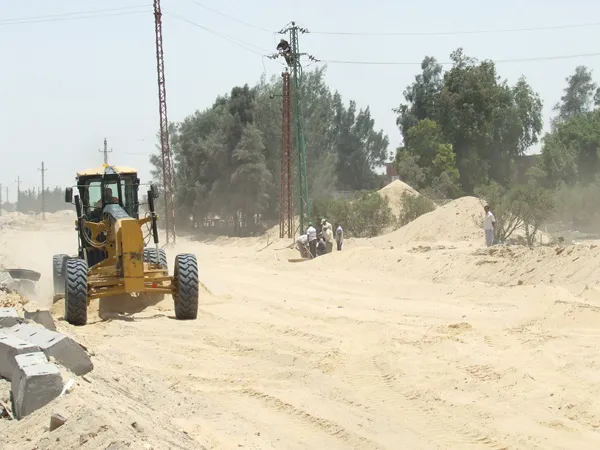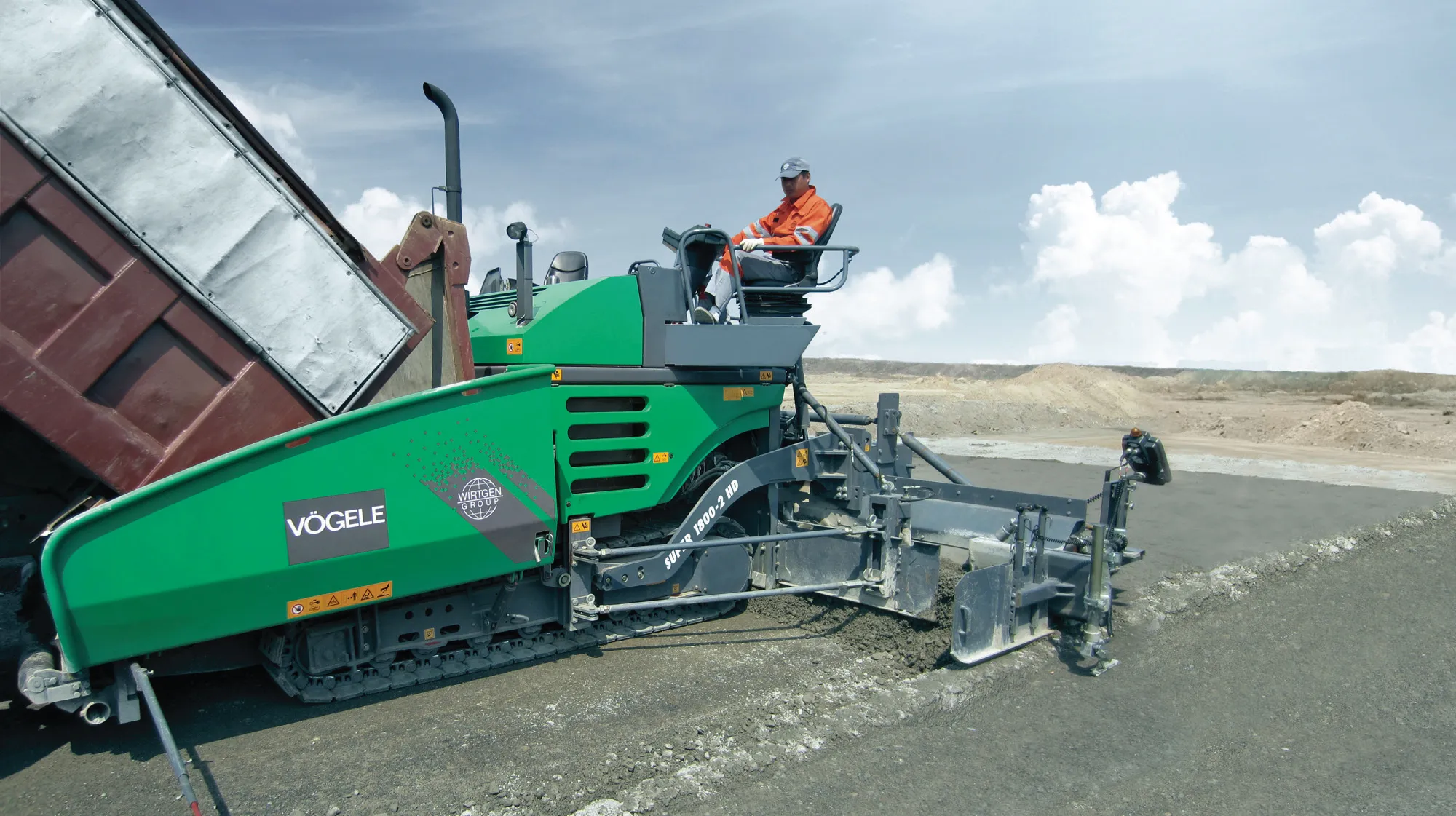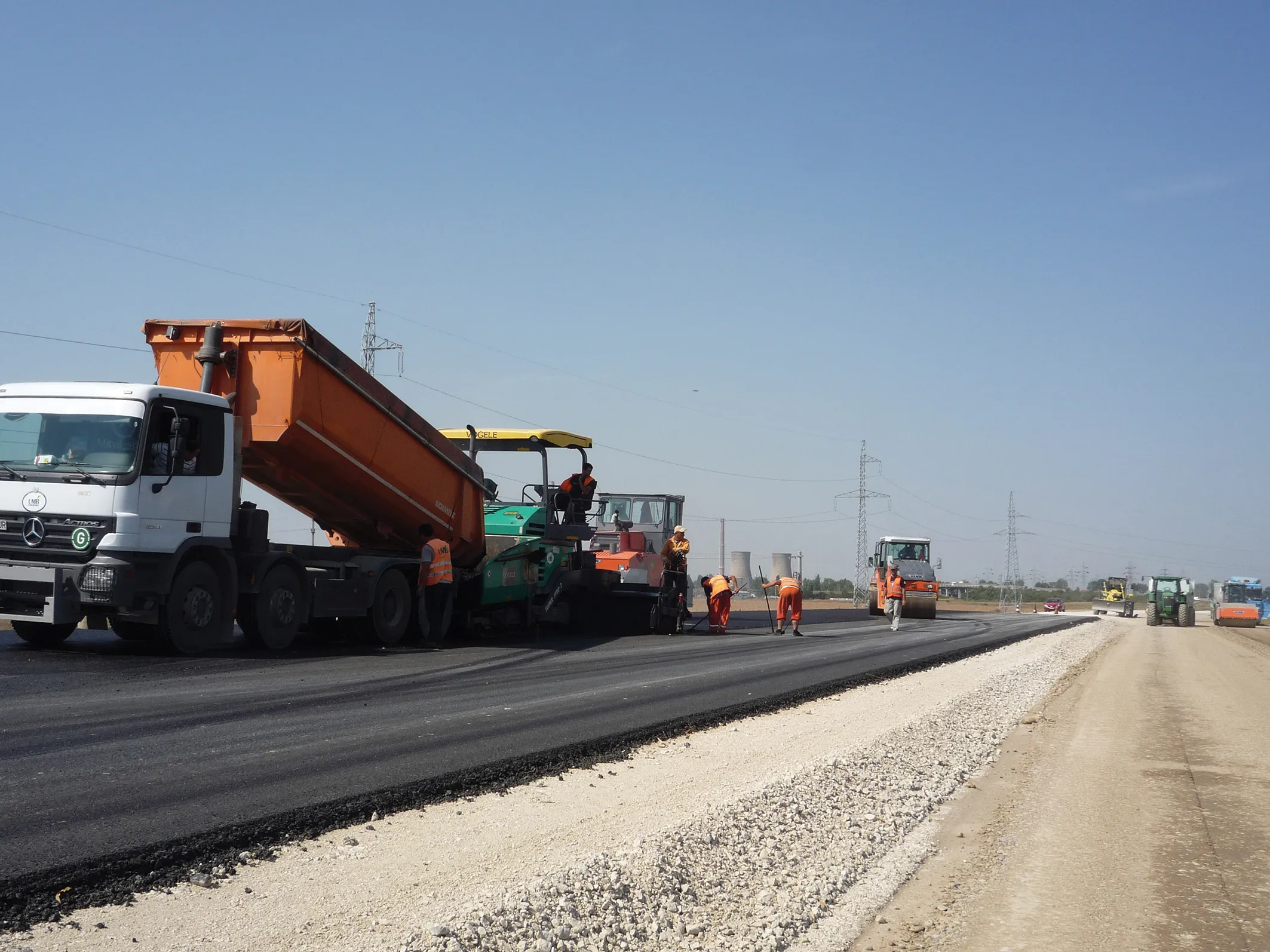
The German contractor STRA-LA-BAU has several
The firm laid the
To ensure the job was carried out properly, STRA-LA-BAU worked closely with Dynapac and the firm’s specialist, Michael Heid. Dynapac advised on suitable machine settings and helped devise a methodology for the job. Necessary features included high precompaction from the screed and the production of a homogenous surface structure for the concrete. To handle the job, the firm selected a Dynapac SD2500CS paver with its high compaction V5100 TVH screed.
The SD2500CS machine showed itself to be sufficiently manoeuvrable to handle the 60m paving lengths. The Dynapac high compaction screed delivered a constant installation thickness of around 140mm in the binder course and 100mm in the top course. In addition to the effective precompaction by the screed, the surface was also produced with a high-quality finish.
The firm then used 12tonne CP 1200 rollers from Dynapac for final compaction, with concrete trowels then employed to deliver the final finish.








